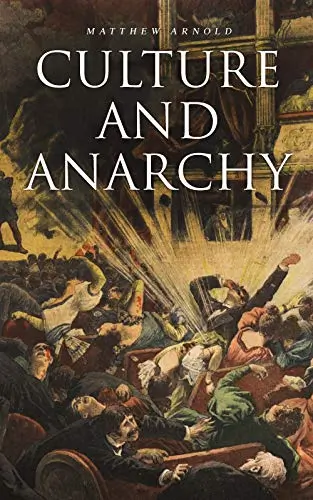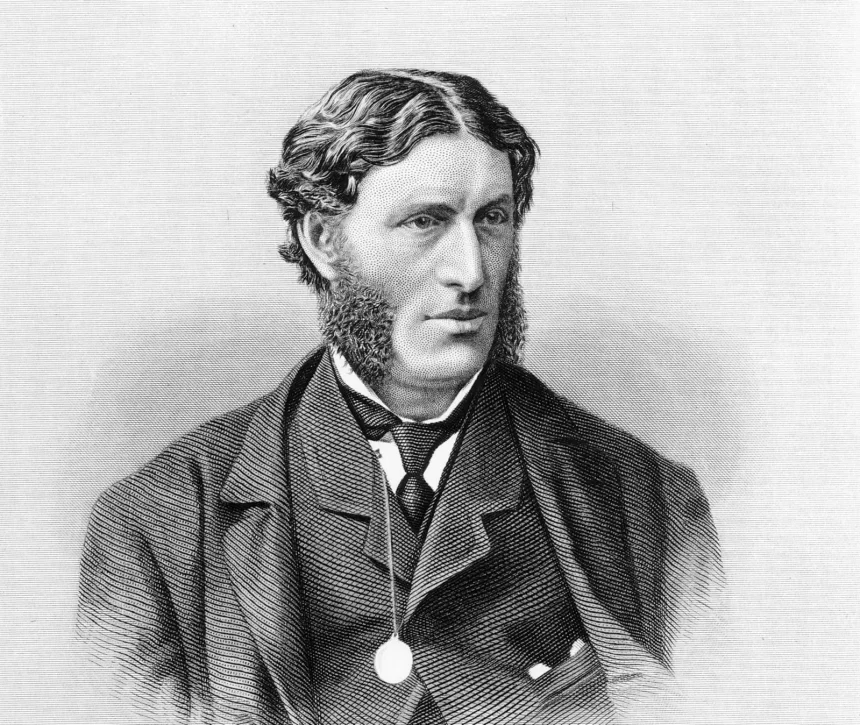A Timeless Exploration of Society and Education
Introduction
In an era marked by rapid social and political change, Matthew Arnold’s “Culture and Anarchy” emerges as a beacon of insight. This Victorian masterpiece, though over a century old, continues to resonate with contemporary readers, offering a deep dive into the roles of culture and education in shaping society. Just as other literary critics like John Dryden, Dr. Samuel Johnson, and Alexander Pope have left indelible marks on literary criticism, Arnold’s work uniquely combines social commentary with cultural critique, making it a pivotal read for understanding the dynamics of modern society.

Key Takeaways
- Arnold’s exploration of culture as a tool for societal improvement.
- The dangers of anarchy and the need for a structured society.
- Education’s pivotal role in promoting cultural values.
Understanding “Culture and Anarchy”
Context and Background of Matthew Arnold
Matthew Arnold, a prominent Victorian figure, was not just a literary critic but a profound social commentator. His experiences in a society undergoing rapid change, mirrored today, laid the foundation for his seminal work, “Culture and Anarchy.” Arnold’s literary peers, such as John Dryden, greatly influenced his perspectives on culture and criticism.
Key Themes in ‘Culture and Anarchy’
Arnold’s “Culture and Anarchy” delves into pivotal themes: the pursuit of perfection through culture, the dangers of societal chaos, and the role of the state in maintaining order. His definition of culture as a study of perfection and a means to overcome human flaws remains a topic of much discussion in today’s society.
Arnold’s Critique of the Society
In his work, Arnold critiqued the social and political environment of his time, much like Dr. Samuel Johnson critiqued his era. Arnold’s observations on the lack of direction in society and the perils of anarchy are surprisingly relevant today, reflecting ongoing struggles in modern societies.
The Contemporary Relevance of Arnold’s Ideas
Culture in the 21st Century
Today’s society, much like Arnold’s Victorian England, is a complex tapestry of diverse cultures and ideas. Arnold’s perspective on culture as a means of attaining social and moral perfection provides a fascinating lens through which to view our current cultural landscape. His ideas encourage a deeper understanding of the role of culture in shaping not only individual character but also societal values.
Anarchy and Social Change
The concept of anarchy, as discussed by Arnold, finds echoes in contemporary societal upheavals. The modern world, with its rapid technological advances and shifting social norms, often teeters on the brink of what Arnold might call ‘anarchy.’ His advocacy for education as a tool to combat this chaos remains profoundly relevant, emphasizing the need for a well-rounded educational system that balances scientific knowledge with cultural and moral education.
Educational Insights from Arnold’s Views
Arnold’s emphasis on the importance of humanities in education is a vital reminder in today’s STEM-focused world. He argued that literature and the arts are crucial in developing critical thinking and empathy, traits essential for a balanced and humane society. His influence extends to modern educational philosophies, advocating for a more holistic approach to learning.
FAQs
What is the main argument of “Culture and Anarchy”?
Arnold argues that culture, defined as the pursuit of perfection and broad knowledge, is essential in combating societal chaos and anarchy.
How does Matthew Arnold define culture?
For Arnold, culture is the study of perfection, encompassing both the arts and sciences, and a crucial tool for societal improvement.
Why is “Culture and Anarchy” still relevant today?
The themes of culture, societal change, and the role of education in shaping society, as discussed by Arnold, continue to resonate in our modern world, making his work timeless.
What was Arnold’s view on education?
Arnold viewed education as a means to instill cultural values and counteract anarchy, emphasizing the importance of humanities alongside scientific studies.
Conclusion
Matthew Arnold’s “Culture and Anarchy” remains a cornerstone in understanding the intricate relationship between culture, education, and societal development. His views, though rooted in the Victorian era, continue to offer valuable insights into modern society, urging us to reflect on our cultural practices and educational systems. It’s a call to action, a reminder to nurture a culture that uplifts and educates, steering us away from the brink of anarchy and towards a more enlightened society.








